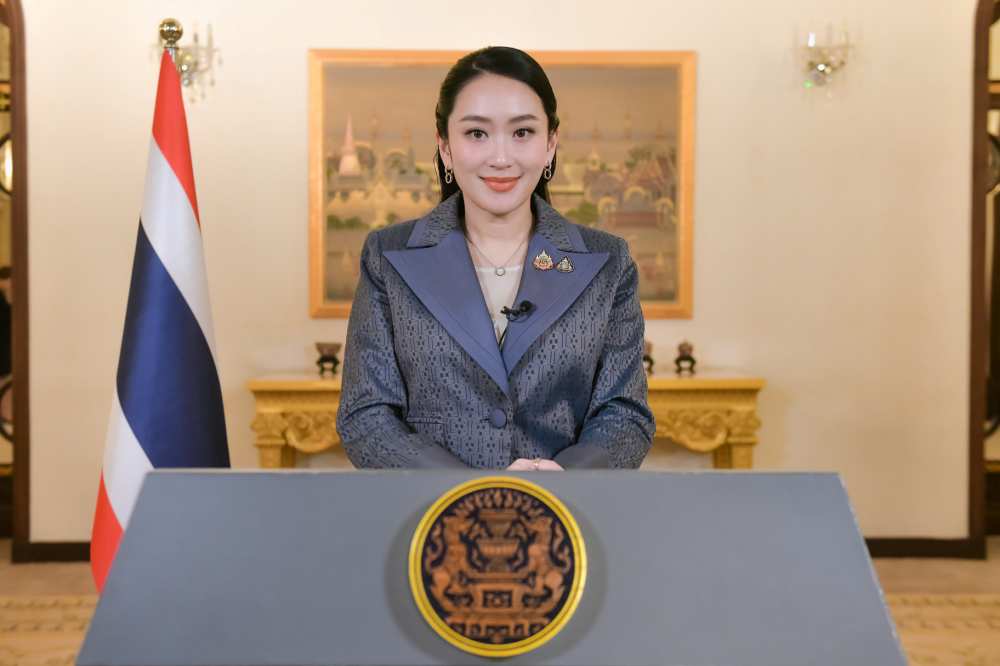Bangkok, June 11 (AseanAll) — Thai Government Spokesperson Jirayu Houngsub disclosed that on June 9, 2025, Thai Prime Minister Paetongtarn Shinawatra handed down the Government’s policies via a recorded videoconference at the opening of an annual meeting of Thai Ambassadors and Consul-Generals to countries around the world, which was held under the topic “Proactive Diplomacy: From Policy to Practice”.

The Prime Minister emphasized pivotal role of Ministry of Foreign Affairs of Thailand, the royal Thai embassies and consulates-general, as Thailand’s frontlines in the global community. This meeting would be an opportunity to exchange ideas and develop action plans to drive Thailand forward under the theme of the meeting, which focuses on translating the Government policies into action for the benefit of all Thai people.
In the current global context, multilateralism is in the decline, while multipolar world, where competition between global powers becomes fiercer, has entered the scene. Trade and technology wars and competitions for resources, which have impacted multilateralism and global economy, and, inevitably, Thailand, raises an important question on how Thailand could lay down a strategy in this context of major transition and multiple challenges so that the country and its people benefit the most amidst the new power structure and world order.
The Prime Minister highlighted two important issues: 1) Building on the country's strengths; and 2) Seeking and seizing new opportunities amidst challenges in a timely manner. Thailand is clear on its diplomatic position, being adhered to the non-alignment policy and maintaining relations with all sides. Its commitment to promote peace and shared prosperity has helped Thailand to protect the country’s interest, and has paved ways for plentiful opportunities in the current global context.
According to the Prime Minister, Thailand should opt for more proactive and unified diplomacy. At the 46th ASEAN Summit, the Prime Minister noted relevance of Thailand's and ASEAN's foreign policy directions in many aspects, that is, (1) to seek opportunities and reinforce domestic and regional strengths; (2) to find new friends and partners with potentials; (3) to adhere to multilateralism and multilateral trading system; (4) to commit to addressing current and future challenges; and (5) to implement people-centered policies.
Focus should also be made on proactive economic diplomacy, especially the establishment of free trade agreements (FTAs) with target countries or groups of countries to advance engines of growth, i.e., exportation and tourism. This will also be an opportunity to ignite the new engines of growth through attracting investment in the S-Curve and future industries, such as semiconductors, future vehicles, and creative economy, along with empowering grassroots economy to elevate quality of life of the Thai people.
The Government also prioritizes key economic infrastructure development by leveraging Thailand’s strategic location to promote land, sea, and air connectivity, particularly the Landbridge project, as well as improving regulations for ease of doing business, developing human resources, and upgrading their essential skills.
In closing, the Prime Minister urged the meeting to use this opportunity to determine guidelines and strategies for driving forward Thailand's foreign affairs in an effective and timely manner amidst the changing global context and in line with the Government’s policy in a bid to ensure that Thailand remains world’s relevant player for the interest of the country and people. She also proposed policy directives for promoting economic development and enhancing Thailand's role, both regionally and globally, through soft power, trade, investment, tourism.